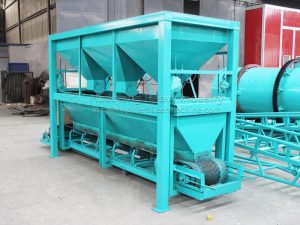In the broad field of fertilizer production equipment, compost machine as a key equipment for organic fertilizer production, its working principle and efficiency are directly related to the yield and quality of fertilizer. Next, we will delve into the workflow of composters, their advantages and their central role in organic fertilizer production lines.
First, the basic work flow of the compost machine
A compost machine is a device that uses microorganisms to decompose organic matter and convert it into high-quality organic fertilizer. Its workflow mainly includes the following steps:
- Raw material preparation: First of all, organic waste such as livestock and poultry manure, crop straw and domestic waste is sent to the compost machine through the conveyor.
- Mixing and stirring: In the compost machine, the raw materials are fully mixed and stirred to ensure that the microorganisms can act evenly on every corner and accelerate the fermentation process.
- Fermentation process: under the appropriate temperature, humidity and ventilation conditions, microorganisms begin to decompose organic matter, producing high temperature, further promoting the decomposition and maturation of organic matter.
- Finished product output: After a certain period of fermentation, the material reaches a decomposed state, becomes a high-quality organic fertilizer, and then passes through the discharge port to the compost machine.
Second, the working advantages of the compost machine
- High efficiency: The composting machine adopts advanced fermentation process and equipment design, which can quickly convert organic waste into organic fertilizer, greatly shortening the production cycle.
- Low cost : Compared with the traditional composting method, the compost machine can save a lot of human and material resources and reduce production costs.
- Environmental protection and energy saving: Through the composting machine to treat organic waste, not only reduces environmental pollution, but also realizes the recycling of resources, in line with the concept of green development.
Three, the various types of composters and their characteristics
Common types of compost machines on the market include hand-held rollover machines, wheeled rollover machines, crawler rollover machines, trough rollover machines, etc. They each have their own characteristics, such as hand-supported flipping machine price, easy to operate; Crawler-type overturning machine has strong power and good terrain adaptability. The trough-type overturning machine covers a small area and has a high space utilization rate. These different types of composters provide a variety of options for farms and organic fertilizer processing plants of different sizes.



